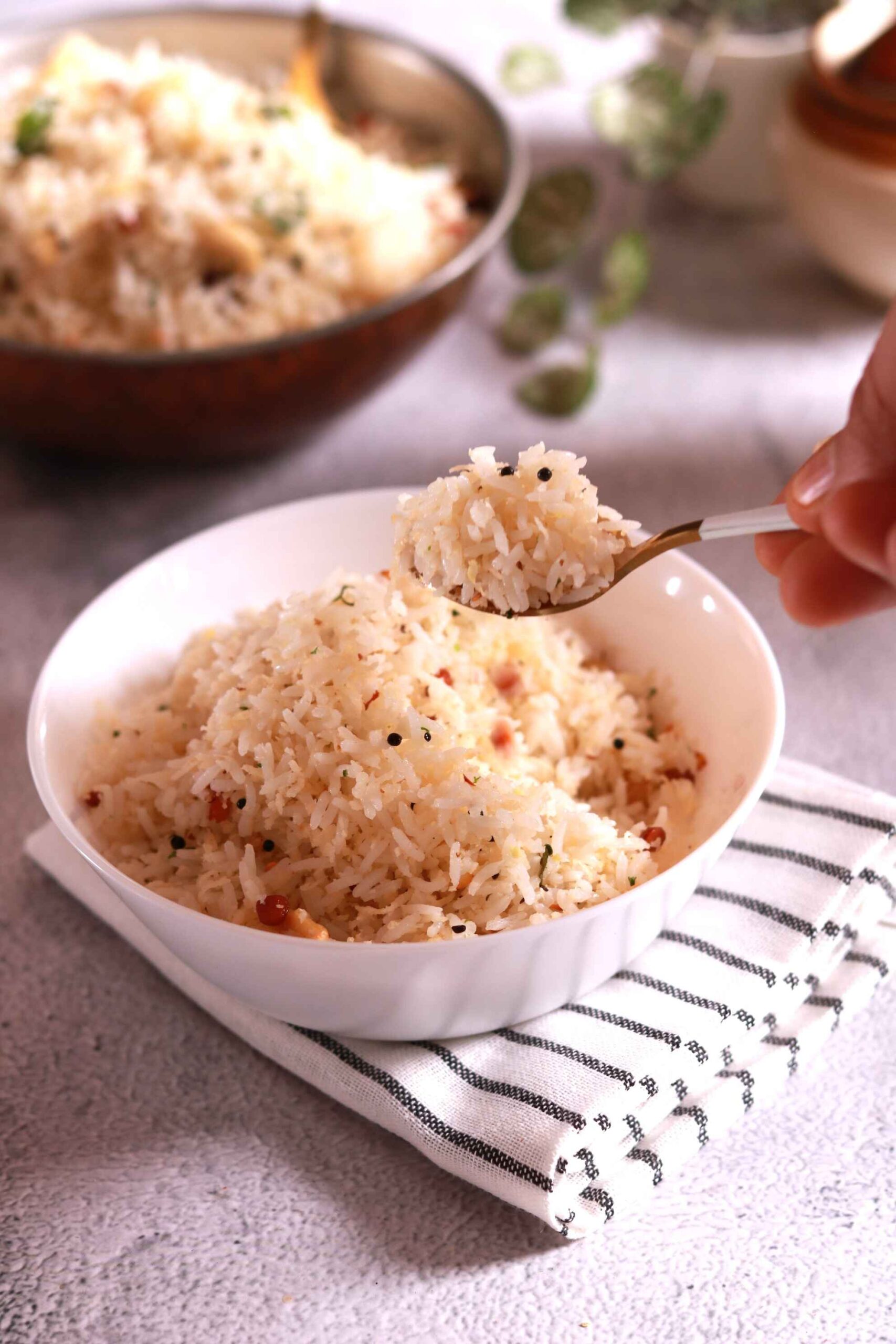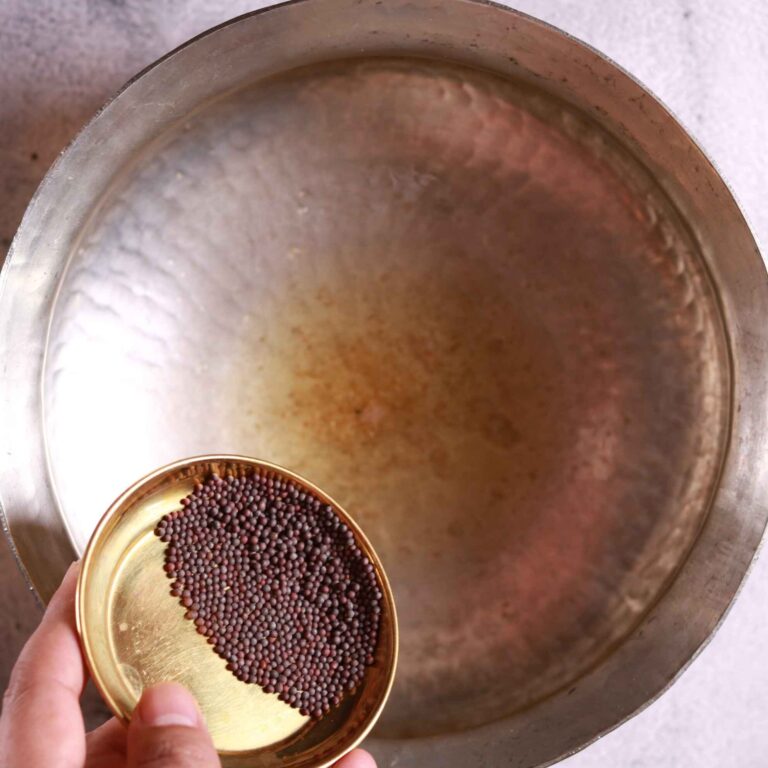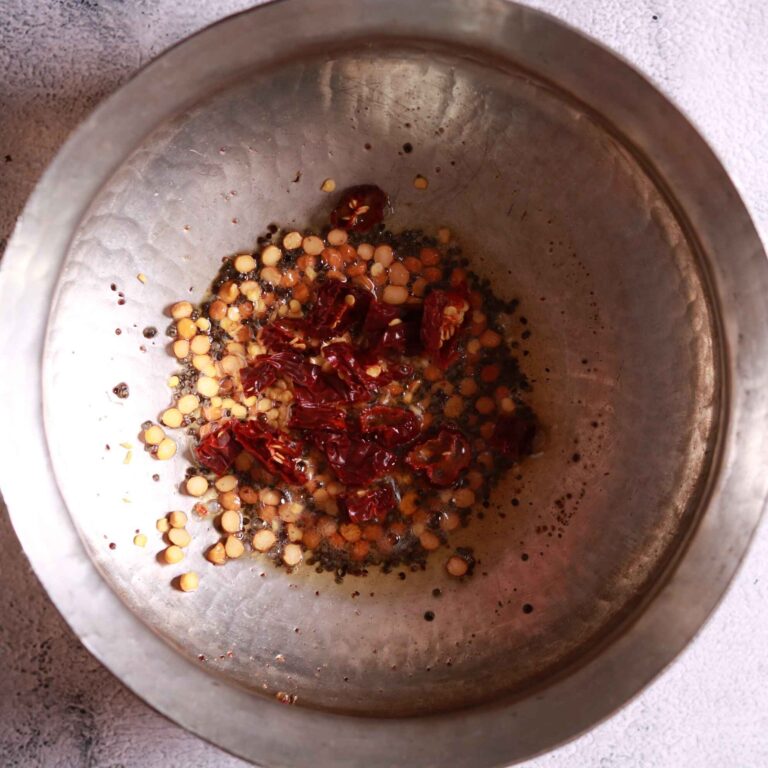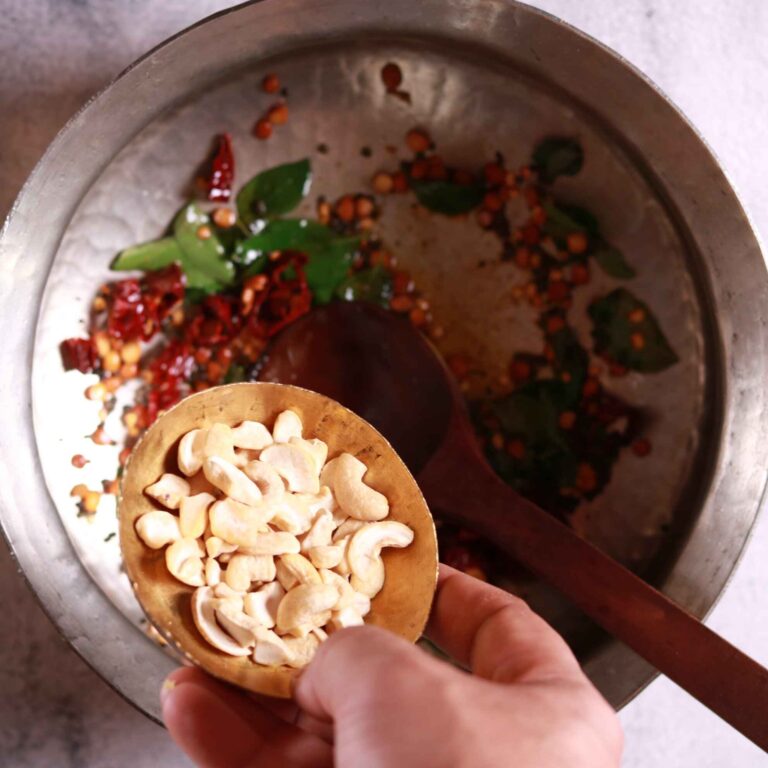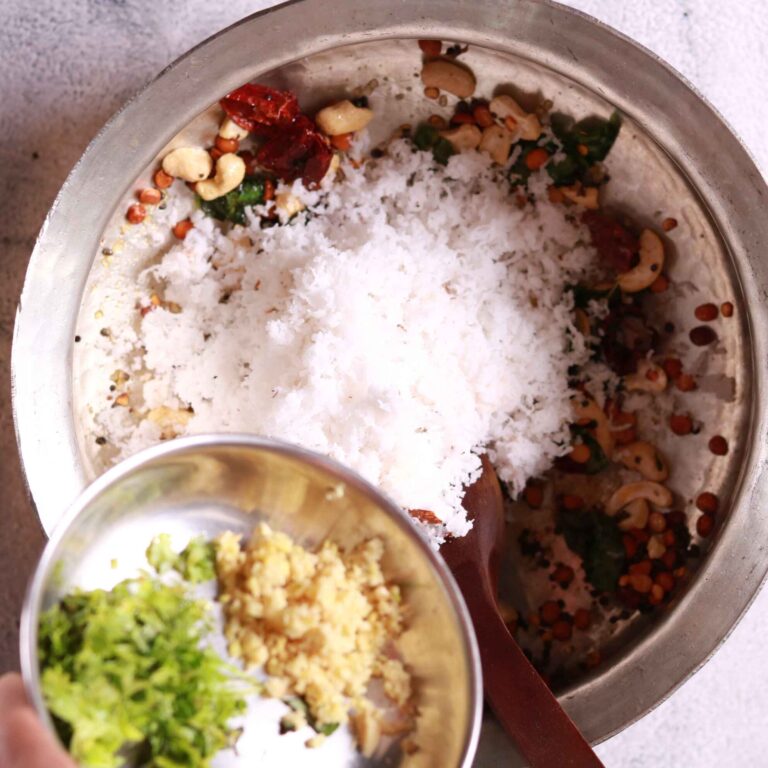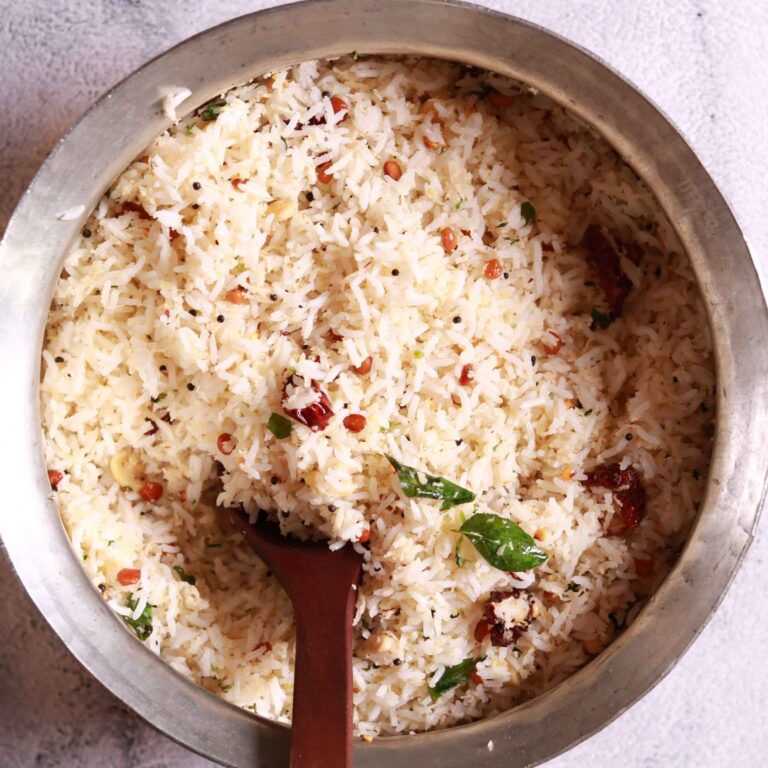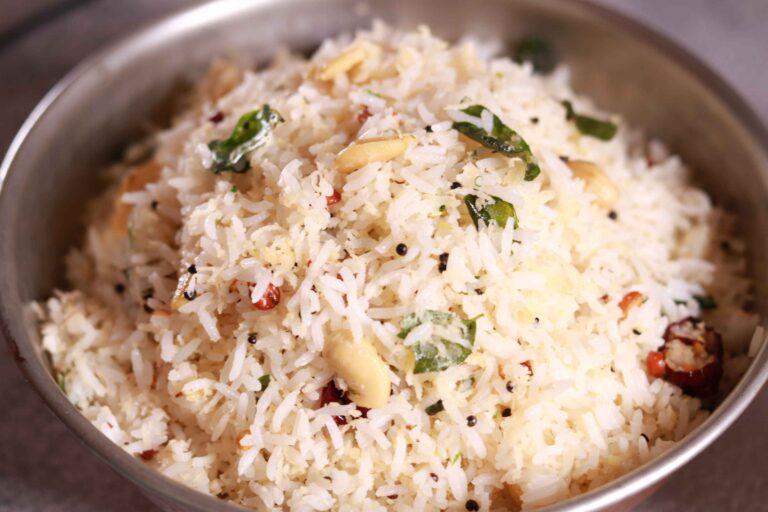Today, I’m going to share something that’s a staple in my kitchen and has the power to transform an ordinary meal into an extraordinary one. Yes, I’m talking about the humble yet incredibly flavorful coconut rice recipe. This dish is so simple that it might just become your go-to when you want something quick, easy, and delicious. Its subtle sweetness and rich texture make it a winner in my book, and I’m sure you’re going to love it too. I’ll walk you through everything you need to know to create this delightful dish right in your own kitchen. So grab your apron, and let’s get started with Thengai Sadam!
Why I LOVE… This Recipe!

You know what gets me thrilled? COCONUT RICE! Why? First of all, it is a party of flavors in my mouth. The creamy texture mixed with the delicate sweetness of coconut – it’s an explosion of taste where each bite feels like a celebration.
Let’s not forget its versatility. I’m serious; you can serve coconut rice with almost anything! It is a perfect breakfast meal that goes will with Sambhar, chutneys or stews. Besides, it’s easy peasy to cook!
But here’s what makes it super special: nostalgia. Whenever I prepare this meal, I can’t help but think about those idyllic days spent lazing on sandy beaches under palm trees somewhere far away from here … And that is why coconut rice isn’t just food; for me, it’s an entire experience – one which I will return to again and again.

The Origin and Popularity of Coconut Rice
Coconut Rice (also called ‘Thengai Sadam’ or ‘Kobbari Annam’ in many South Indian languages) has travelled across cultures and cuisines over time. This can be traced back through its history, which spans different regions all around the world where coconuts grow abundantly, such as India, Thailand, or the Philippines, among other tropical countries… The beauty lies within versatility—local adaptation according to taste preference is what made this dish become popular globally.
The main reason the coconut rice recipe became famous everywhere could be that anyone can easily prepare fluffy rice mixed with creamy coconuts. Even though they seem like two separate things, put together, they magically create fantastic flavour sensations when consumed as a single plateful full of warmth for body, mind, and soul alike. There’s no doubt about it; sometimes, we all need some comfort food—and that’s exactly what coconut rice does.
Coconut Rice (Thengai Sadam) Recipe Ingredients
So what do I use when cooking up my own delightful dish? Well, obviously, rice and coconut are the main stars, but there’s more to them than meets the eye.
- For example, Short Ponni rice or kolam grain is what usually works best with me as they give off an aromatic fragrance while cooking plus their texture becomes light & fluffy once done which makes everything even better.
- As far as coconuts go – nothing beats freshly grated ones because not only does it provide richness but also adds depth in terms of flavor that cannot be achieved through any other means whatsoever.
This can’t work without a few other things either. The tempering is a mixture of spices and Thengai Sadam recipe ingredients fried in coconut oil or ghee that adds extra flavors to the dish. Mustard seeds, dried red chilies, curry leaves, and cashews are some components you could use for tempering – there’s plenty more where those came from! Every single ingredient has its role within this symphony called Coconut Rice; all working together harmoniously so they create something truly special
My Coconut Rice Recipe: Image Gallery






Chef Yogi’s Notes: Tips and Tricks for Coconut Rice Recipe Perfection
A few secret tips can turn any recipe from good to great – and coconut rice (kobbari annam) is no different.
For example,
- Allowing the rice to cool down a little before mixing it with the tempering can prevent it from turning into mush.
- Another useful trick is to use coconut oil for tempering so as to bring out even more of its flavor.
If you want a lighter version, try using light coconut milk instead of grated coconut.
Balance is key when making perfect coconut rice – you want to be able to taste the coconut, feel the texture of the rice and hear that crunch in your tempering all at once. So take your time, keep tasting along the way and adjust ingredients according to what suits your palate best.
Pairing Your Coconut Rice (Thengai Sadam)
Pairing options for coconut rice are endless because it can be served as a main dish or even a side dish. When serving as a main course meal, try topping toasted flake cinnamon cilantro leaves and squeeze lime juice over the top – this will give it that burst of flavour.
As side dishes, think, spicy curries, grilled seafood, simple vegetable stir fry etc. The creaminess from the rice acts perfectly against strong flavours and spices.
If you want a more elaborate feast, then serve up some papadums, pickles, and cucumber raita alongside your coconut rice – these two complement each other really well. So don’t limit yourself go ahead and experiment until you find what works best together
Another suggestion is not to stir the rice too much once it is done. You should keep those whole, light grains in the pot. When you add the flavoured oil, gently fold it in instead of mixing it.
Ingredients
- 1 cup short-grain rice Ponni or Kolam rice you can either take 500 gm pre-boiled rice or soak 1 cup for 20 minutes
- 2 tbsp Coconut Oil or Vegetable oil/ Coconut Oil
- ⅛ tsp Asafoetida Hing
- ½ tbsp Mustard Seeds
- 1 ½ tbsp Bengal Gram Dal
- 2 no whole Red Chilies
- 3 no Curry Leaves Sprigs
- 1 tbsp Cashew nuts broken
- ½ tbsp Sugar
- ½ tbsp Table Salt to taste or to taste
- 1 cup Fresh Grated Coconut
- ½ inch piece Ginger Finely chopped
- 1 tbsp Coriander leaves chopped
Instructions
- Prepare the Rice: Rinse and soak the short-grain rice (Kolam rice) in water for about 20 minutes. Drain and cook in boiling water
- Prep the Ingredients: Grate the fresh coconut and chop the coriander leaves. Break the cashew nuts into smaller pieces. Chop the ginger into small bits.
- Temper the Oil: Heat the vegetable or sunflower oil in a thick-bottomed pan over medium heat.
- Infuse Flavors: Once the oil is hot, add the asafoetida (hing) followed by the mustard seeds. Allow the mustard seeds to crackle.
- Add Aromatics: Next, add the soaked Bengal gram dal (20 min and water drained) and whole red chilies to the pan. Fry until the dal turns golden brown and the chilies become aromatic.
- Incorporate Nuts and Leaves: Toss in the broken cashew nuts and curry leaves. Stir fry for a minute until the cashews start to turn golden.
- Sweet and Savory: Now, sprinkle in the sugar and add salt to taste. Mix well to combine.
- Add Fragrant Elements: Stir in the chopped ginger, followed by the grated coconut and chopped coriander leaves. Cook for a couple of minutes until the coconut releases its aroma.
- Combine with Rice: Lower the heat and add the soaked and boiled rice to the pan. Gently mix all the ingredients, ensuring the rice is evenly coated with the flavorful mixture.
- Final Touch: Allow the coconut rice to heat through on low flame, stirring occasionally, for about 2-3 minutes.
- Serve: Once heated, serve the coconut rice hot. Enjoy its fragrant aroma and flavorful taste!
Explore Our Latest Recipes
-
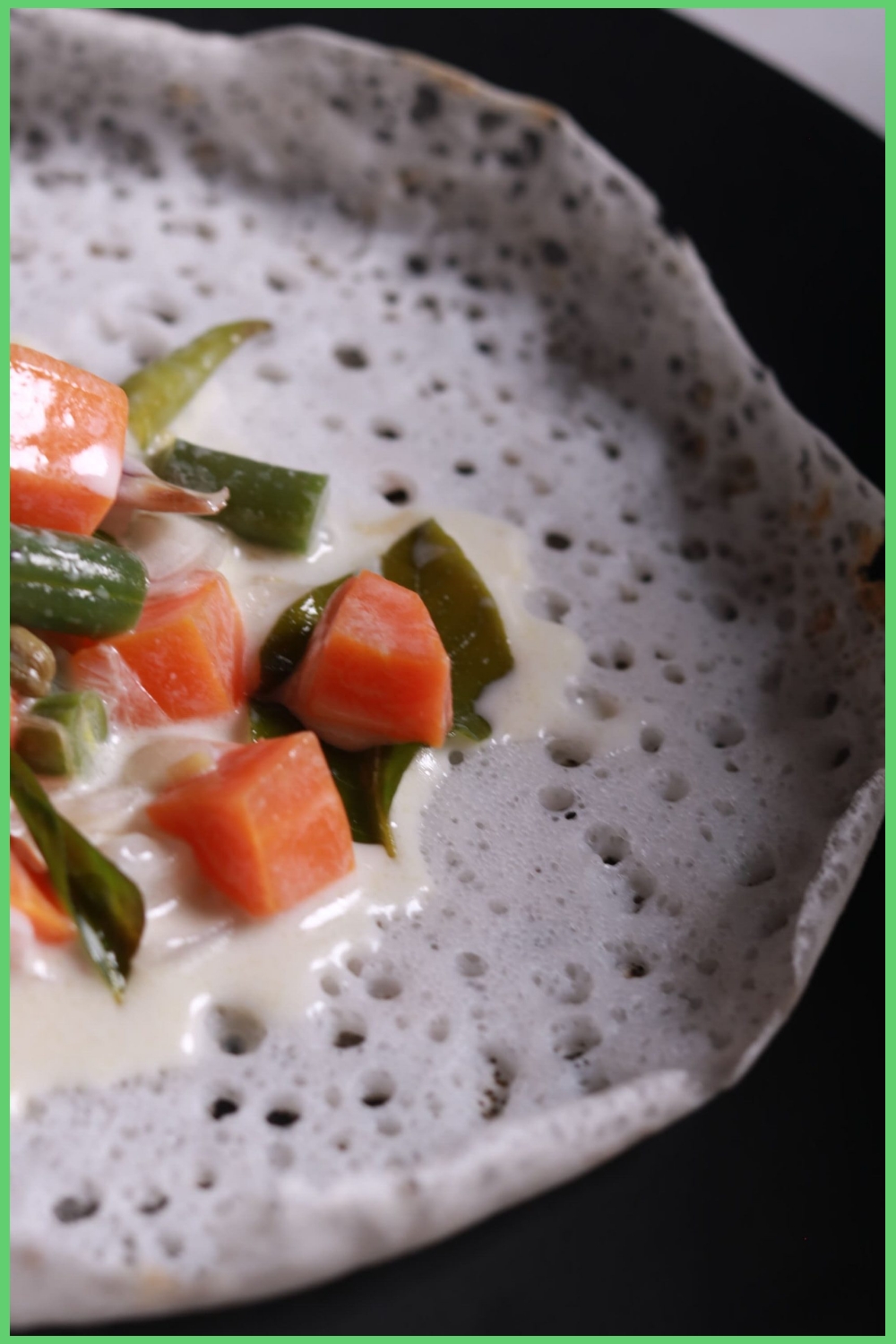
Easy Homemade Appam Recipe: Soft & Fluffy South Indian Pancakes for Breakfast
If you’ve ever wandered through the bustling streets of Kerala or Tamil Nadu in the early morning, you’ve probably caught a whiff of something warm, slightly sweet, and utterly inviting. That’s appam, it is a… Read more
-
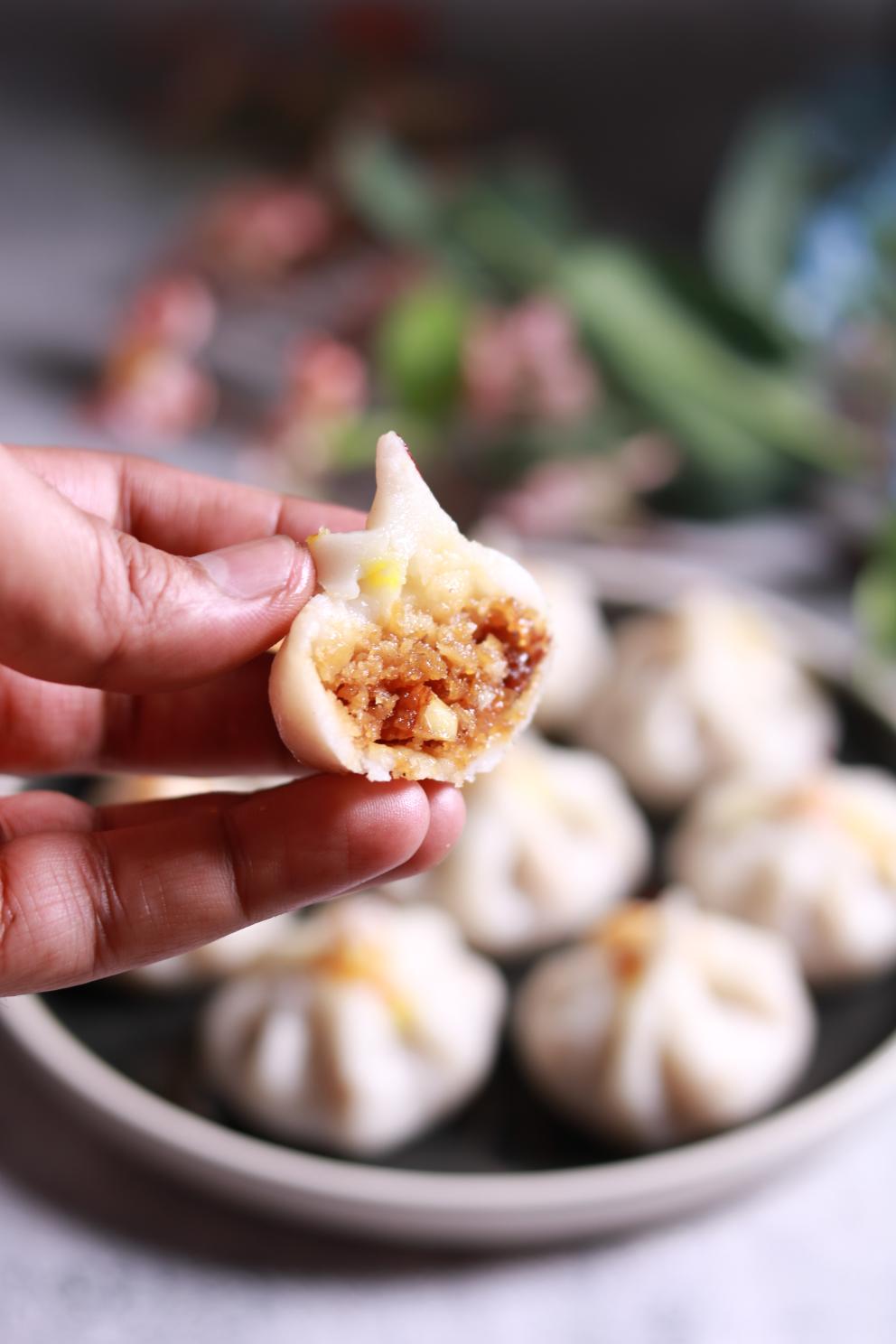
Ukadiche Modak: Traditional Maharashtrian Sweet
There’s something absolutely magical about making ukadiche modak at home, especially when Ganesh Chaturthi is around the corner. I still remember having this in Goa at our Maharashtrian nebours when they invited me for the Ganpati Pooja,… Read more
-

Authentic Muttai Thokku Recipe: South Indian Egg Curry
Have you ever tried Muttai Thokku? This delicious South Indian egg curry (sometimes spelled as Mutti Thokku) is a flavor explosion that will transform your weeknight dinner routine! I’m so excited to share this authentic… Read more

